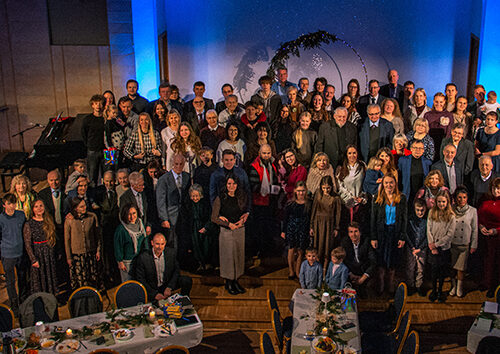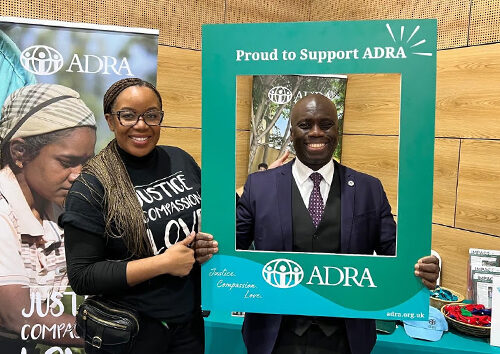24 June 2024| St Albans, UK [Adrain Peck, with tedNEWS]
In recent times, a certain candidate for the US presidency has come in for some sharp criticism for remarks he has been making about immigrants. This is particularly where he suggested immigrants are “poisoning the blood of our country.” The links to twentieth century fascism were quickly made and just as quickly denied. The irony is that back in 2017, the same person highlighted our common humanity by noting how, no matter the colour of one’s skin, we all bleed red.
The label ‘immigrant’ can be, or whether it should be is, stigmatising. Prefacing that with the word ‘illegal’ makes it even more so. It confers on the person a status that is very different from that of a citizen. Even if that person goes on to adopt the nationality of their new homeland, they are never quite the same as someone from ‘here.’
The strength and weakeness of labels
We need to use labels to help us negotiate our way through life. They help us cope with what can be the overwhelming amount of information that flows in ever increasing volume around planet earth. Labels can help medical professionals as they identify and respond to health trends in different populations. Labels can highlight who is being marginalised in society. Labels identify us as Christians, members of the Seventh-day Adventist Church, and disciples of Jesus. The problem is that labels also depersonalise and are a step along the path to dehumanisation.
Labels enable us to put ourselves and others into different groups. However, as soon as we do that something of one’s personality and individuality is lost. Getting subsumed into a group allows stereotyping to kick in. Hence, to understand that I am British, in some eyes, is to suggest I am overpolite, apologise too readily, and eat a lot of fish and chips. It might also mean that compared to your group, my being British also means I lack warmth and emotion. Research suggests this is naturally taken a step further where it is concluded that my fellow compatriots and I are not quite as human as those in your group who exhibit a full range of emotions and are not afraid to express themselves. Experts call this infrahumanisation – where ‘infra’ means under. To infrahumanise others therefore means to ‘under-humanise’them – to see them as less than human.

Groups and identity
Research goes on to suggests that the result is we tend to hang around with people from our groups. Why would we want to socialise or associate too much with those from other groups who are not quite as human as we are? We might go as far as suggesting that if we were to mix, that somehow it would damage our group, spoil the dynamics, maybe even poison the blood of our country.
An example from Bible times can be seen in the animosity between the Samaritans and the Jews. As many have pointed out, this is evident in the exchange Jesus has with the lawyer in Luke 10. For, when Jesus asks the lawyer in verse 36 whowas a neighbour out of the priest, Levite, and Samaritan, he cannot bring himself to even say the word “Samaritan” in his response in verse 37.

Use with caution
Even though labels are necessary, they should be used with caution. Without being cautious we will tend to see those who are not Christians or Adventists as not being quite as human as we are. They, after all, are not quite as far down the route of being recreated in the image of God as we are; they don’t quite obey the 10 commandments as we do; they aren’t as in touch with the Holy Spirit through their conscience as we are. Hence, we will tiptoe into their territory and then retreat back to where it is safe and everyone believes in God and behaves as we do. Even internally, we will distance ourselves from others by referring to ourselves as conservative or progressive. Indeed, we will regard those at the opposite end of the political, theological, moral or any other spectrum with suspicion.
Labels should be used with caution because we should recognise they do not encourage community and belief in a common humanity who all bleed red, but fracture and splinter it.
The answer is to be found in de-labelling others. In prioritising the individual. In enhancing and promoting others’ humanity. In remembering that, however fractured, all are made in God’s image with all that that entails.
Featured Image: The Stanborough Press
All other images: Shutterstock
Excerpts from Peck’s book, Church on the Move – From Isolation to Community, recently published by Stanborough Press, feature in every regular edition of tedNEWS from January to September 2024. In doing so, we’re inviting you to become a fellow traveller with Peck. Interestingly, his book offers ‘movements’ rather than ‘chapters’ to encourage a sense of the reader ‘being in transition’. If there was a book that particularly aligns and wrestles over the meaning of the Trans-European Division’s three strategic values to Extend Love, Grow Lifelong Disciples, and Multiply Communities, it is this one.
Copies of Church on the Move are available from Life Source Christian Bookshop (the retail outlet of The Stanborough Press). The book is also available as an eBook for Kindle. [Photos: Stanborough Press (featured image)
- ‘Movement 1’, The Question of Neighbourliness first published in the January edition of tedNEWS asked the question, “Am I being a neighbour without limits, qualifications, equivocation, or hesitation?”.
- ‘Movement 2’, Bad Breath, Awkward Silences, and the Art of Being Uncomfortable invited us to dare imagine the church community as a foretaste of the Kingdom of God.
- ‘Movement 3’, When will you become like us? Or should we be asking when will you become like Jesus?
- ‘Movement 4’, Initially, they seemed to attract only left-handed people… but then some right-handed people began to turn up.
- ‘Movemment 5’, Human Waste and Human Beings
- Movement 6, ‘Trading Gossip for Vulnerability’. (July tedNEWS)



